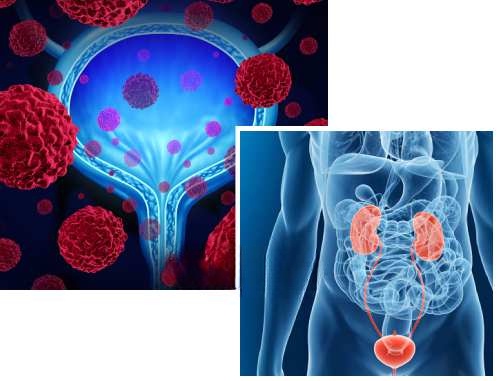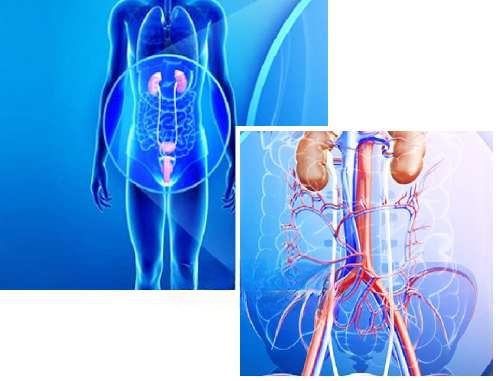Urologic Cancer Doctor in Kolkata
Symptoms of Urologic Cancer
Painless Blood in Urine
This can be one of the first indicators of bladder, kidney, or prostate cancer.
Urination Issues or Changes in Sexual Function
Difficulties with urination or alterations in sexual performance may signal bladder or urethral cancer.
Skin Growths or Sores
These may be indicative of penile or testicular cancer.
If you are facing similar issues, don’t delay and reach out to the uro oncologist doctor in Kolkata.
Causes of Urologic Cancer
Genetic Factors
Age
Smoking
Obesity
Chronic Inflammation
Exposure to Chemicals
Radiation Exposure
Hormonal Factors
Sexually Transmitted Infections


Types of Urologic Cancer
Prostate Cancer
Bladder Cancer
Kidney Cancer
The kidneys filter waste from the blood and produce urine. The most common type of kidney cancer is renal cell carcinoma, which presents as a single tumour.
Urethral Cancer
Testicular Cancer
Penile Cancer

Stages of Urologic Cancer
Stage 0 (Carcinoma in Situ)
Stage I
Stage II
Stage III
Stage IV

Additional Considerations
Grading:
In addition to staging, urologic cancers are often graded based on how abnormal the cancer cells look under a microscope. This grading can help predict how aggressive the cancer may be.
Staging Systems:
Various staging systems may be used for different urologic cancers (e.g., TNM system, which evaluates Tumour size, Node involvement, and Metastasis).
Diagnosis of Urologic Cancer
Medical History and Symptoms Review
Physical Examination
Laboratory Tests
Urinalysis:
A urine test can help detect blood, cancer cells, or other substances that may indicate a problem.
Blood Tests:
Tests may be done to evaluate kidney function and check for specific tumour markers related to urologic cancers.
Imaging Studies
Ultrasound:
This imaging technique uses sound waves to create images of the kidneys, bladder, and prostate, helping to identify masses or abnormalities.
CT Scan (Computed Tomography):
Provides detailed cross-sectional images of the abdomen and pelvis to detect tumours and assess their size and spread.
MRI (Magnetic Resonance Imaging):
Offers detailed images of soft tissues and is useful for evaluating the extent of cancer.
X-rays:
May be used to look for signs of metastasis in the lungs or bones.
Biopsy
Cystoscopy
Staging

Treatments of Urologic Cancer
Radiation Therapy
External Beam Radiation:
Targeted radiation from outside the body to kill cancer cells.
Brachytherapy:
Involves placing radioactive seeds directly in or near the tumour for localised treatment.
Chemotherapy
Immunotherapy
Targeted Therapy
Hormone Therapy
Contact the uro oncologist doctor in Kolkata to determine the suitable treatment approach for your needs.



